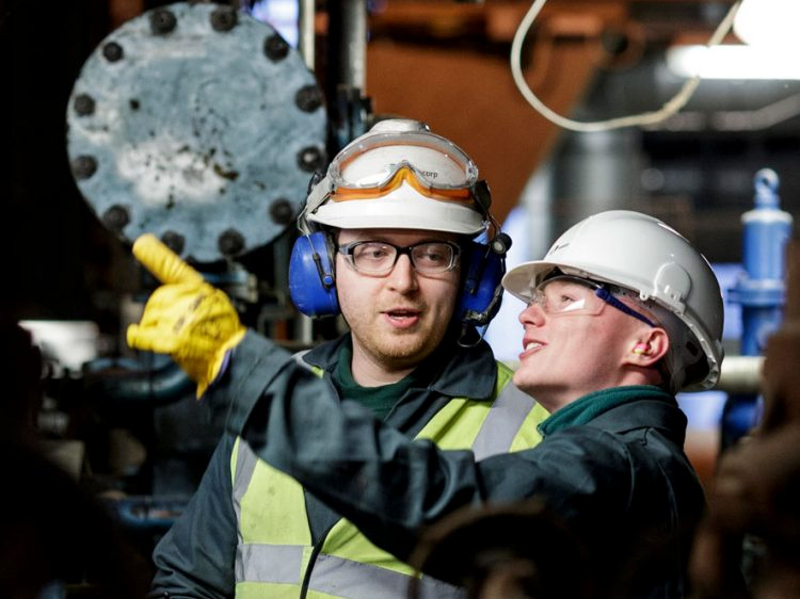 Image: bp
Image: bp
Four northern England low carbon blue hydrogen projects have been given the go ahead by government as part of an industrial decarbonisation drive.
The four projects, which form part of a group of twenty with associated carbon capture, have been shortlisted and now go into due diligence stage prior to possible investment from government.
The four projects include one in the northwest, part of the HyNet North West industrial decarbonisation cluster, and three in the northeast, part of the East Coast Cluster.
Vertex Hydrogen is a joint venture between Essar Oil and Progressive Energy to develop a 1GW low carbon hydrogen plant in Ellesmore Port on Britain’s northwest coast, with carbon to be captured and delivered for sea bed storage in former gas production wells in Liverpool Bay.
H2Teesside is a bp project to develop a 1GW low hydrogen plant on Teesside on the northeast coast, with start-up planned for 2027 and full production by 2030, with carbon to be captured for storage out in a southern North Sea deep aquifer.
H2NorthEast is a 1GW low carbon hydrogen initiative from Kellas Midstream adjacent to its Central Area Transmission System (CATS) gas terminal, also on Teesside with start-up planned for 2027 and full production by 2030.
Hydrogen to Humber (H2H) Saltend is a project from Equinor with a planned initial 600MW capacity near Hull in the Humber Estuary and carbon captured and similarly piped out to the North Sea storage facilities.
Blue hydrogen for industrial decarbonisation
HyNet North West is a regional initiative to decarbonise industries across northwest England and north Wales, while the East Coast Cluster comprised of Net Zero Teeside and Zero Carbon Humber is focussed on decarbonisation in the Teesside and Humber areas of the east coast.
In addition to the hydrogen developments, the government also gave the go ahead to three East Coast Cluster power projects with carbon capture, usage and storage and to five HyNet industrial projects and eight East Coast Cluster industrial projects with carbon capture.
In announcing the selection, the government stated that the projects have the potential to accelerate the country’s decarbonisation ambitions, realise economic benefits in the respective regions, kick start the hydrogen economy and put the country on a path to decarbonising the power system by 2035, while maintaining security of supply.
David Parkin, HyNet project director, said the hydrogen produced from Vertex will allow vital industries such as chemicals, food and drink, paper and metal production to fully decarbonise, retaining and creating new high value manufacturing jobs.
“By 2030, HyNet will be capturing and storing 10 million tonnes of carbon dioxide – a greenhouse gas – each year, a quarter of all emissions across the north west of the UK.”
Andy Lane, managing director of the Northern Endurance Partnership and East Coast Cluster, said; “The East Coast Cluster will enable an unparalleled and diverse mix of low carbon projects that will create and support thousands of skilled jobs in exciting new industries.”
